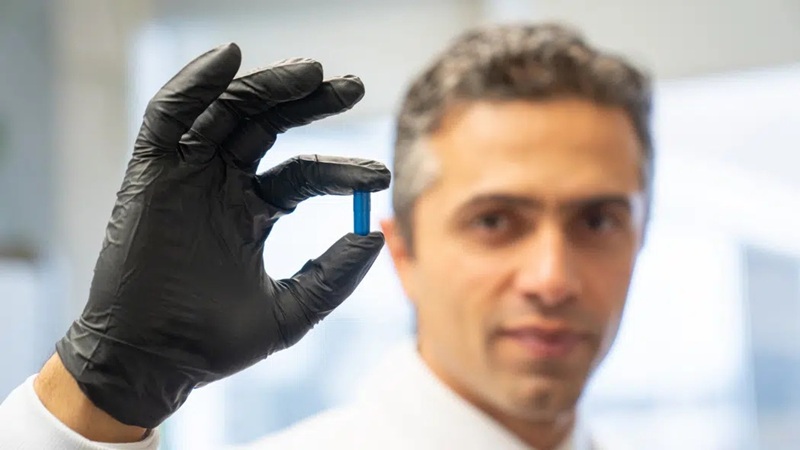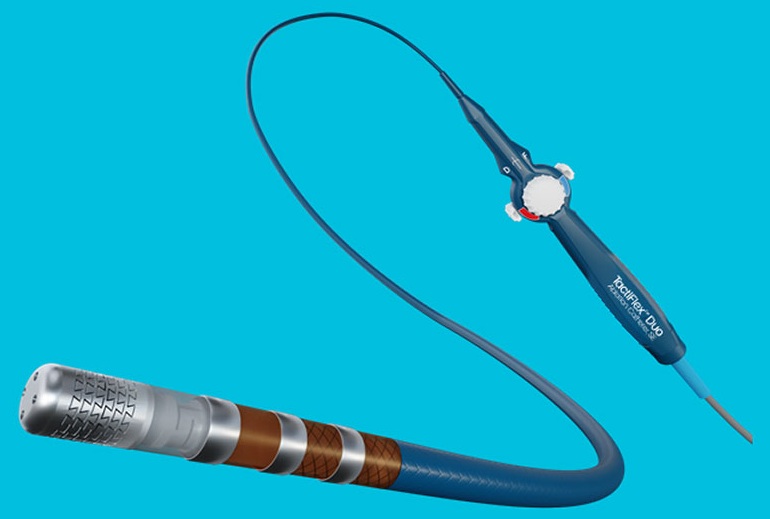Moderna Begins Dosing in Phase 3 Study of mRNA COVID-19 Vaccine Candidate
|
By HospiMedica International staff writers Posted on 28 Jul 2020 |
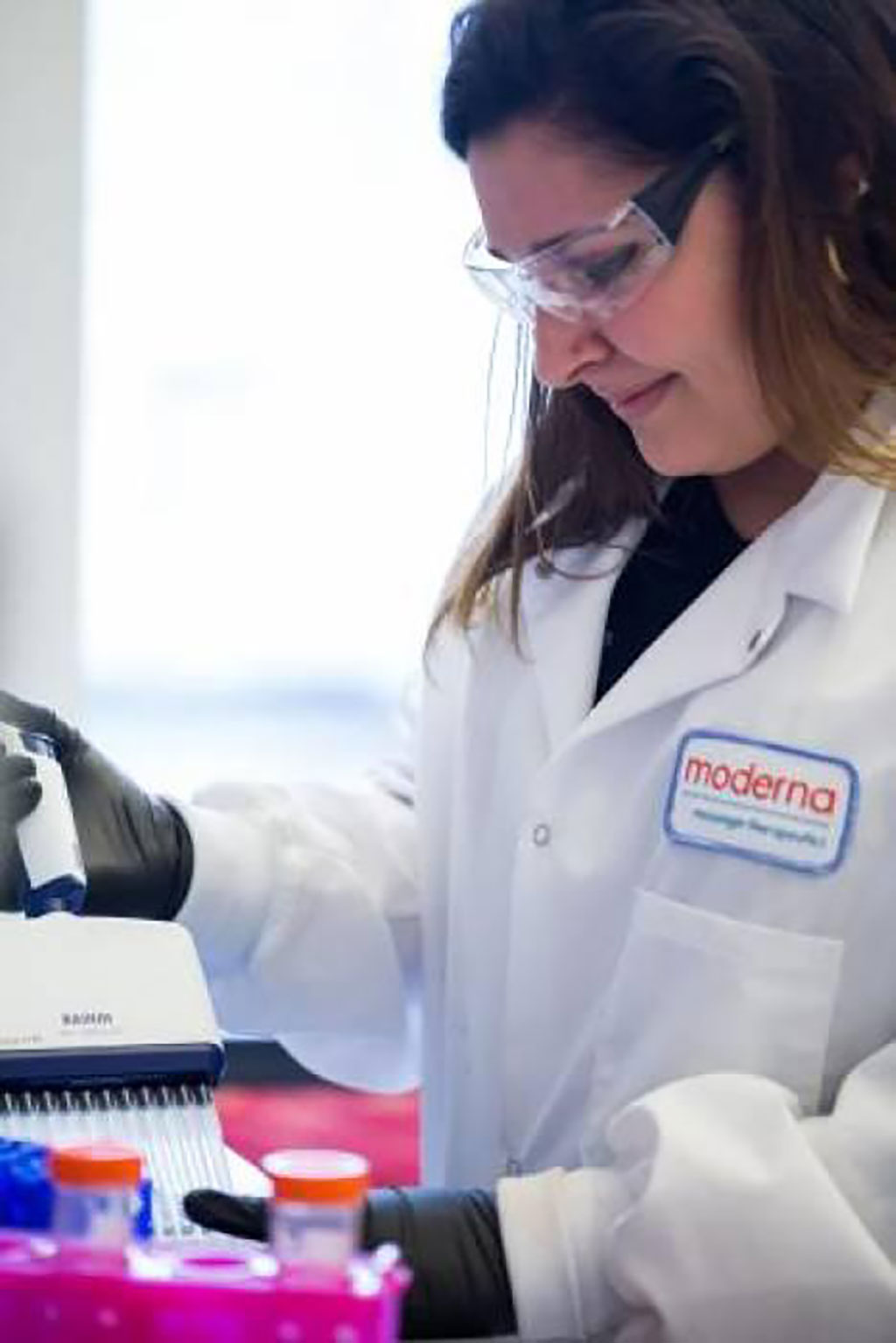
Image: Moderna Begins Dosing in Phase 3 Study of mRNA COVID-19 Vaccine Candidate (Photo courtesy of Moderna, Inc.)
Moderna, Inc. (Cambridge, MA, USA) has begun dosing in the Phase 3 study of its mRNA vaccine candidate (mRNA-1273) against COVID-19.
The Phase 3 study, called the COVE (Coronavirus Efficacy) study, is being conducted in collaboration with the National Institute of Allergy and Infectious Diseases (NIAID), part of the National Institutes of Health (NIH) and the Biomedical Advanced Research and Development Authority (BARDA), part of the Office of the Assistant Secretary for Preparedness and Response at the US Department of Health and Human Services. Moderna is working closely with BARDA and the NIH, including NIAID’s COVID-19 Prevention Network (CoVPN), to conduct the Phase 3 COVE study under the auspices of Operation Warp Speed.
The Phase 3 study protocol follows the US Food and Drug Administration (FDA) guidance on clinical trial design for COVID-19 vaccine studies. The randomized, placebo-controlled trial is expected to include approximately 30,000 participants in the US for testing an mRNA-1273 dosage of 100 µg. The primary endpoint will be the prevention of symptomatic COVID-19 disease. Key secondary endpoints include prevention of severe COVID-19 disease (as defined by the need for hospitalization) and prevention of infection by SARS-CoV-2 regardless of symptomology.
The primary efficacy analysis of the Phase 3 study will be an event-driven analysis based on the number of participants with symptomatic COVID-19 disease. To ensure the ongoing safety monitoring of the participants in the trial, data will be reviewed by an independent Data and Safety Monitoring Board organized by NIAID throughout the study. Moderna remains on track to be able to deliver approximately 500 million doses per year, and possibly up to 1 billion doses per year, beginning in 2021.
“We are pleased to have started the Phase 3 COVE study,” said Stephane Bancel, CEO at Moderna. “We are grateful to the efforts of so many inside and outside the company to get us to this important milestone. We are indebted to the participants and investigators who now begin the work of the COVE study itself. We look forward to this trial demonstrating the potential of our vaccine to prevent COVID-19, so that we can defeat this pandemic.”
Separately, Moderna’s contract with the BARDA has been modified for an additional commitment of up to USD 472 million to support late stage clinical development, including the expanded Phase 3 study of the company’s mRNA vaccine candidate against COVID-19.
Moderna had entered into an earlier contract with BARDA for up to USD 483 million to support the scale up of mRNA-1273 and clinical development, originally with a smaller anticipated number of participants in the Phase 3 clinical trial. Following discussions with the FDA and consultations with Operation Warp Speed over the past several months, the company has decided to conduct a significantly larger Phase 3 clinical trial, leaving a gap in BARDA funding that will be closed by this contract modification. Under the terms of the revised contract, BARDA is expanding its support of the company’s late stage clinical development of mRNA-1273, including the execution of the 30,000 participant Phase 3 study in the US. The total value of the award is now approximately USD 955 million.
“We thank BARDA for this continued commitment to mRNA-1273, our vaccine candidate against COVID-19,” said Bancel. “Encouraged by the Phase 1 data, we believe that our mRNA vaccine may aid in addressing the COVID-19 pandemic and preventing future outbreaks.”
Related Links:
Moderna, Inc.
The Phase 3 study, called the COVE (Coronavirus Efficacy) study, is being conducted in collaboration with the National Institute of Allergy and Infectious Diseases (NIAID), part of the National Institutes of Health (NIH) and the Biomedical Advanced Research and Development Authority (BARDA), part of the Office of the Assistant Secretary for Preparedness and Response at the US Department of Health and Human Services. Moderna is working closely with BARDA and the NIH, including NIAID’s COVID-19 Prevention Network (CoVPN), to conduct the Phase 3 COVE study under the auspices of Operation Warp Speed.
The Phase 3 study protocol follows the US Food and Drug Administration (FDA) guidance on clinical trial design for COVID-19 vaccine studies. The randomized, placebo-controlled trial is expected to include approximately 30,000 participants in the US for testing an mRNA-1273 dosage of 100 µg. The primary endpoint will be the prevention of symptomatic COVID-19 disease. Key secondary endpoints include prevention of severe COVID-19 disease (as defined by the need for hospitalization) and prevention of infection by SARS-CoV-2 regardless of symptomology.
The primary efficacy analysis of the Phase 3 study will be an event-driven analysis based on the number of participants with symptomatic COVID-19 disease. To ensure the ongoing safety monitoring of the participants in the trial, data will be reviewed by an independent Data and Safety Monitoring Board organized by NIAID throughout the study. Moderna remains on track to be able to deliver approximately 500 million doses per year, and possibly up to 1 billion doses per year, beginning in 2021.
“We are pleased to have started the Phase 3 COVE study,” said Stephane Bancel, CEO at Moderna. “We are grateful to the efforts of so many inside and outside the company to get us to this important milestone. We are indebted to the participants and investigators who now begin the work of the COVE study itself. We look forward to this trial demonstrating the potential of our vaccine to prevent COVID-19, so that we can defeat this pandemic.”
Separately, Moderna’s contract with the BARDA has been modified for an additional commitment of up to USD 472 million to support late stage clinical development, including the expanded Phase 3 study of the company’s mRNA vaccine candidate against COVID-19.
Moderna had entered into an earlier contract with BARDA for up to USD 483 million to support the scale up of mRNA-1273 and clinical development, originally with a smaller anticipated number of participants in the Phase 3 clinical trial. Following discussions with the FDA and consultations with Operation Warp Speed over the past several months, the company has decided to conduct a significantly larger Phase 3 clinical trial, leaving a gap in BARDA funding that will be closed by this contract modification. Under the terms of the revised contract, BARDA is expanding its support of the company’s late stage clinical development of mRNA-1273, including the execution of the 30,000 participant Phase 3 study in the US. The total value of the award is now approximately USD 955 million.
“We thank BARDA for this continued commitment to mRNA-1273, our vaccine candidate against COVID-19,” said Bancel. “Encouraged by the Phase 1 data, we believe that our mRNA vaccine may aid in addressing the COVID-19 pandemic and preventing future outbreaks.”
Related Links:
Moderna, Inc.
Latest COVID-19 News
- Low-Cost System Detects SARS-CoV-2 Virus in Hospital Air Using High-Tech Bubbles
- World's First Inhalable COVID-19 Vaccine Approved in China
- COVID-19 Vaccine Patch Fights SARS-CoV-2 Variants Better than Needles
- Blood Viscosity Testing Can Predict Risk of Death in Hospitalized COVID-19 Patients
- ‘Covid Computer’ Uses AI to Detect COVID-19 from Chest CT Scans
- MRI Lung-Imaging Technique Shows Cause of Long-COVID Symptoms
- Chest CT Scans of COVID-19 Patients Could Help Distinguish Between SARS-CoV-2 Variants
- Specialized MRI Detects Lung Abnormalities in Non-Hospitalized Long COVID Patients
- AI Algorithm Identifies Hospitalized Patients at Highest Risk of Dying From COVID-19
- Sweat Sensor Detects Key Biomarkers That Provide Early Warning of COVID-19 and Flu
- Study Assesses Impact of COVID-19 on Ventilation/Perfusion Scintigraphy
- CT Imaging Study Finds Vaccination Reduces Risk of COVID-19 Associated Pulmonary Embolism
- Third Day in Hospital a ‘Tipping Point’ in Severity of COVID-19 Pneumonia
- Longer Interval Between COVID-19 Vaccines Generates Up to Nine Times as Many Antibodies
- AI Model for Monitoring COVID-19 Predicts Mortality Within First 30 Days of Admission
- AI Predicts COVID Prognosis at Near-Expert Level Based Off CT Scans
Channels
Artificial Intelligence
view channelCritical Care
view channel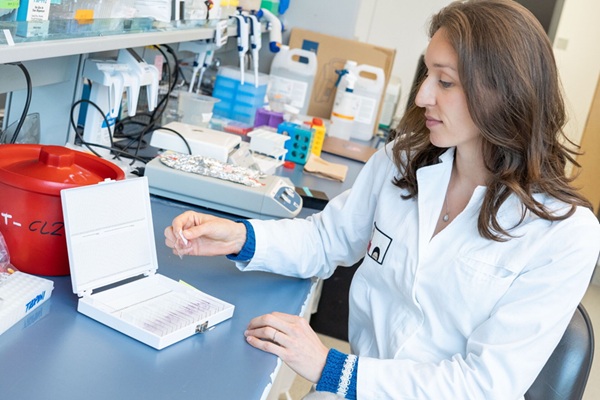
Glowing Bacterial Sensors Could Improve Detection of Gut Illness
Diagnosing gastrointestinal diseases often relies on invasive procedures such as endoscopy, which provide only a single snapshot of gut health. These methods make it difficult to track how diseases progress... Read moreGut Bacteria from Amphibians and Reptiles Show Complete Tumor Elimination
While the relationship between gut microbiota and cancer has drawn growing attention in recent years, most strategies have focused on indirect approaches such as microbiome modulation or fecal microbiota... Read moreSurgical Techniques
view channel
New Classification System Brings Clarity to Brain Tumor Surgery Decisions
Low-grade brain tumors known as IDH-mutant gliomas (CNS WHO grade 2) are life-threatening despite their slow growth. Surgeons must balance maximal tumor removal against the risk of neurological deficits,... Read more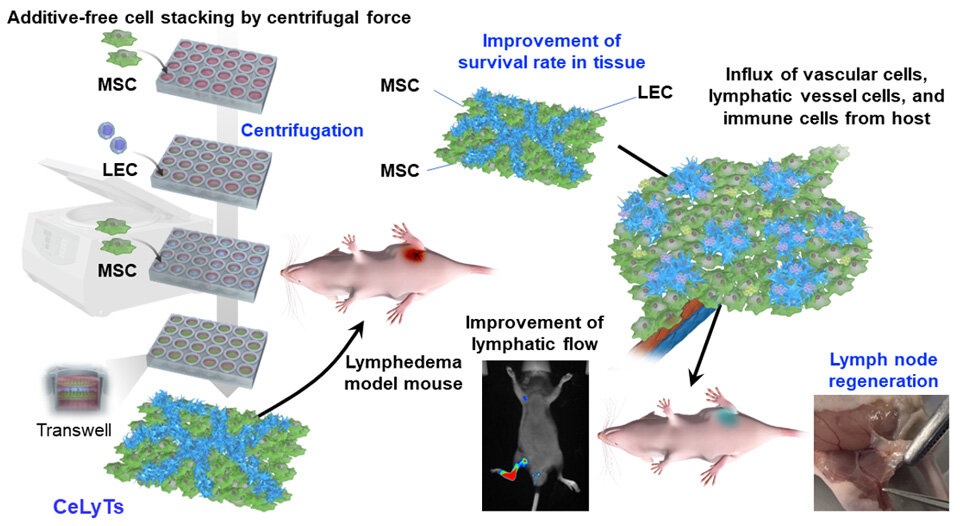
Boengineered Tissue Offers New Hope for Secondary Lymphedema Treatment
The rising global incidence of cancer has led to an increasing number of surgeries involving lymph node removal. While these procedures are critical for cancer staging and preventing metastatic spread,... Read morePatient Care
view channel
Revolutionary Automatic IV-Line Flushing Device to Enhance Infusion Care
More than 80% of in-hospital patients receive intravenous (IV) therapy. Every dose of IV medicine delivered in a small volume (<250 mL) infusion bag should be followed by subsequent flushing to ensure... Read more
VR Training Tool Combats Contamination of Portable Medical Equipment
Healthcare-associated infections (HAIs) impact one in every 31 patients, cause nearly 100,000 deaths each year, and cost USD 28.4 billion in direct medical expenses. Notably, up to 75% of these infections... Read more
Portable Biosensor Platform to Reduce Hospital-Acquired Infections
Approximately 4 million patients in the European Union acquire healthcare-associated infections (HAIs) or nosocomial infections each year, with around 37,000 deaths directly resulting from these infections,... Read moreFirst-Of-Its-Kind Portable Germicidal Light Technology Disinfects High-Touch Clinical Surfaces in Seconds
Reducing healthcare-acquired infections (HAIs) remains a pressing issue within global healthcare systems. In the United States alone, 1.7 million patients contract HAIs annually, leading to approximately... Read moreHealth IT
view channel
EMR-Based Tool Predicts Graft Failure After Kidney Transplant
Kidney transplantation offers patients with end-stage kidney disease longer survival and better quality of life than dialysis, yet graft failure remains a major challenge. Although a successful transplant... Read more
Printable Molecule-Selective Nanoparticles Enable Mass Production of Wearable Biosensors
The future of medicine is likely to focus on the personalization of healthcare—understanding exactly what an individual requires and delivering the appropriate combination of nutrients, metabolites, and... Read moreBusiness
view channel
Medtronic and Mindray Expand Strategic Partnership to Ambulatory Surgery Centers in the U.S.
Mindray North America and Medtronic have expanded their strategic partnership to bring integrated patient monitoring solutions to ambulatory surgery centers across the United States. The collaboration... Read more
FDA Clearance Expands Robotic Options for Minimally Invasive Heart Surgery
Cardiovascular disease remains the world’s leading cause of death, with nearly 18 million fatalities each year, and more than two million patients undergo open-heart surgery annually, most involving sternotomy.... Read more
WHX in Dubai (formerly Arab Health) to debut specialised Biotech & Life Sciences Zone as sector growth accelerates globally
World Health Expo (WHX) in Dubai, formerly Arab Health, which takes place from 9-12 February 2026 at the Dubai Exhibition Centre (DEC), has officially announced the launch of a new dedicated Biotech &... Read more














